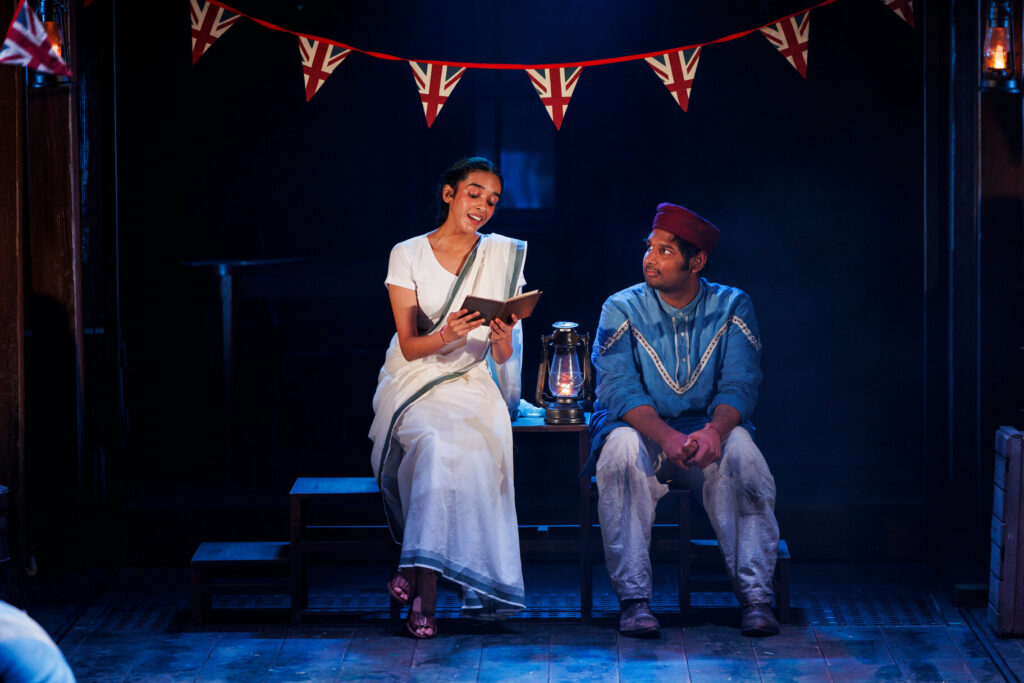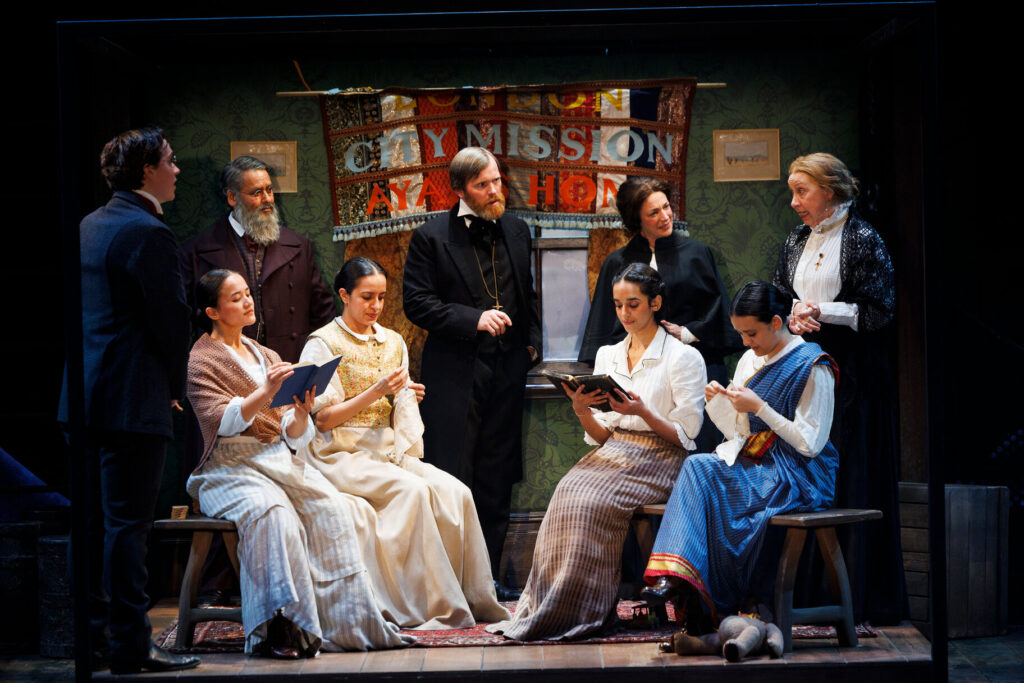Students at the Shakespeare Institute have the opportunity to join weekly seminars with experts on Shakespeare and theatre. Recently, Layla Madanat talked about her experience as assistant director for the RSC show The Empress. MA Shakespeare and Creativity student Diana Green writes about what she learnt from this session.
An excellent perk of being a student at the Shakespeare Institute is the weekly seminar. There have been a number of interesting speakers on a wide variety of topics, but outstanding among these was the talk from Layla Madanat, the assistant director for the RSC show The Empress.

Directing The Empress
The Empress is a complex story of interwoven themes. There are two love stories set against a backdrop of the period surrounding Queen Victoria’s Golden Jubilee. One involves the Queen herself becoming obsessed with an Indian Munshi (teacher) named Abdul Karim, while the second is between two young Indian immigrants.
Layla said that some of the most fascinating work on the show involved the voice coach exploring various dialects with the actors. “When you are speaking in your mother tongue your body changes,” she observed. Thirteen out of 18 actors in the cast were making their RSC debut with this production: many of them of Indian or Asian descent. It must have been exciting to explore how their own ancestries could inform their work on these characters.

Challenges in performing the play in different theatres
Layla also discussed the challenges of moving between the intimate space at The Swan to the much larger Lyric Theatre in London. She said that there was a movement director at rehearsal every day when they re-rehearsed the show for London who helped to spread the action so that the “theatre ballet” pieces which involved the whole cast could transition gracefully to fill up the larger space.
Some key visual elements of the show were the result of fascinating background stories unearthed in research for the play. There are huge gold frames around side boxes to the sides of the stage at the upper level. We were told that these were intended to represent Queen Victoria’s penchant for “tableaux vivant.” Apparently, the Queen enjoyed making people dress in costume and stand in frames for hours as living portraits. During the show it was the Queen and her lady in waiting who occupied these spaces while other scenes were going on below.
A career as a “series of adventures”
For Layla Madanat, working on The Empress was her first encounter with being an assistant director, though she has held a myriad of jobs in the arts.
“Every job I take begins with the question ‘What do I want to do next?’” she laughed. She views her career as a series of adventures. This quest has manifested stints as a personal assistant to a violinist, a team member at a foundation, and a dramaturg among others. The last led her to continue her path in theatre by applying for the position of assistant director on The Empress.
When questioned from the audience about what drives these varied choices she replied, “Push back against the attitude that you can’t be interested in lots of things. And don’t put ‘aspiring’ in front of anything on your resume.”
